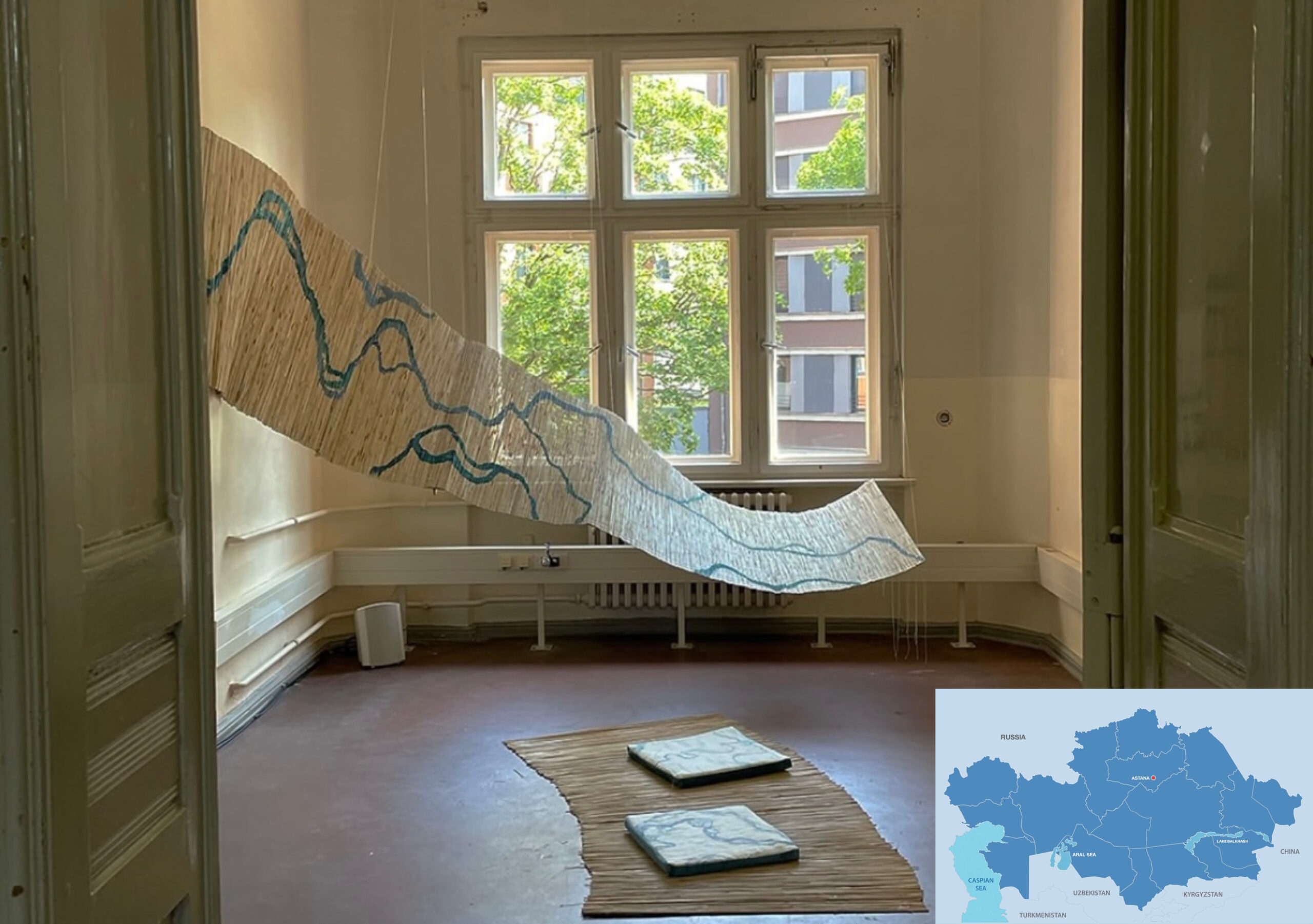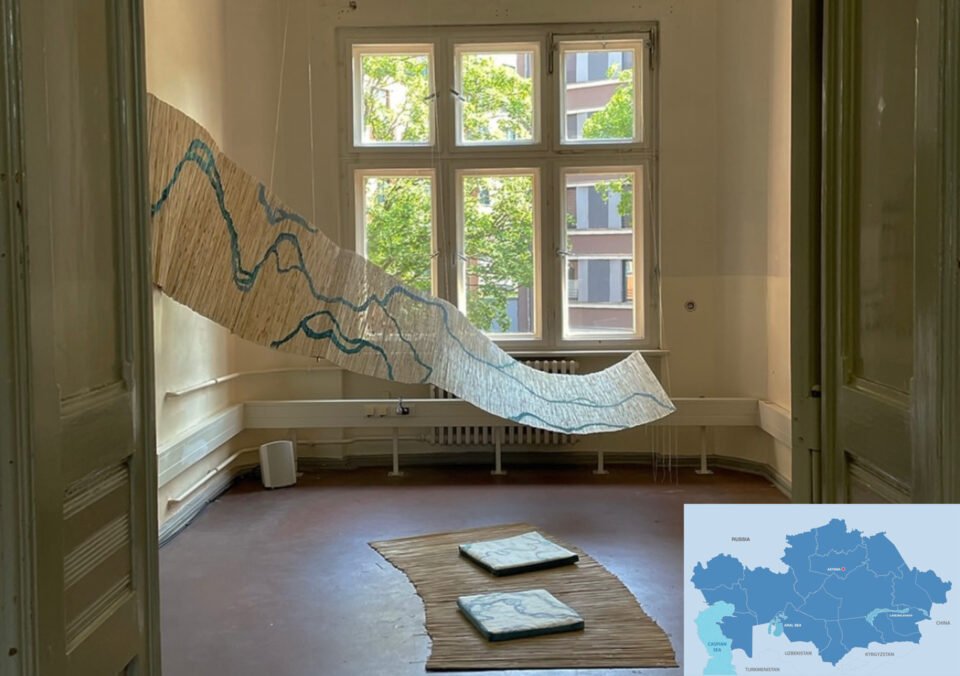ASTANA – Kazakhstan’s artwork highlighting climate change and cultural identity has been featured at the Berlin Biennale of Contemporary Art. The Artcom Platform, a collective of female artists and researchers, presented the Balkhash Zhyry (The Song of Lake Balkhash), a video installation exploring the environmental and historical narrative of Lake Balkhash, at the 13th edition of the biennale, titled “passing the fugitive on”.

Balkhash Zhyry video installation. Photo credit: Tselinny Center of Contemporary Culture.
Click to see the map in full size. The map is designed by The Astana Times.
Set in a former Berlin courthouse, the work uses video, animation, poetry, and archival materials to give Lake Balkhash a symbolic voice and body. The installation draws on Qazaqliq – a semi-nomadic philosophy rooted in “steppe democracy.” Qazaqliq is not merely a historical concept, but a living tactic of survival: a conscious departure from imposed structures, a search for freedom beyond colonial, legal, or institutional frameworks. It is a return to a way of being that centers mobility, autonomy, and care for the land.
Since 2020, Artcom has been working to reimagine care for Lake Balkhash, which is at risk from overuse and climate change. Balkhash Zhyry is not only a visual experience, but also a call to rethink human relationships with nature. Supported by Tselinny Center of Contemporary Culture, the project highlights how art can serve as both reflection and response to ecological crises, reported the center’s press service on June 21.
The international exhibition presents more than 60 artists and 170 works of art. The 13th Berlin Biennale will run through Sept.14.

